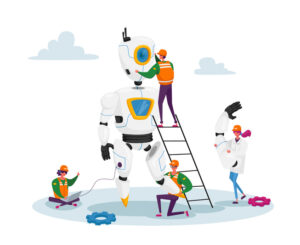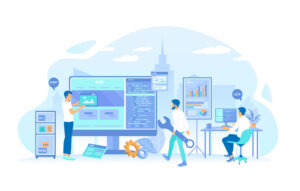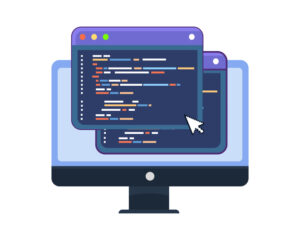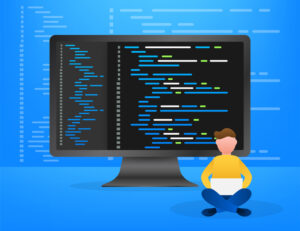If you’re preparing for a tech interview, you’ve probably heard the phrase “system design” thrown around. The system design interview is often the make-or-break moment for software engineers and architects looking to land their next big role. But what exactly does it entail, and how do you prepare for it? Let’s dive into system design interview questions and explore what you need to do to ace this critical part of the interview process.
What Are System Design Interviews?
System design interviews focus on your ability to design large, scalable, and efficient systems. In essence, the interviewer is testing how you approach complex problems, break them down into smaller parts, and come up with solutions that will work in the real world. These interviews are typically open-ended, giving you the freedom to think creatively about how to design everything from a social media app to a global payment processing system.
It’s not just about coding — it’s about demonstrating your understanding of architecture, scalability, reliability, and trade-offs. You’ll be asked to design systems that handle massive amounts of data and millions of users, and your solutions will be judged on how well they scale, how easy they are to maintain, and how well you think through edge cases.
The Common System Design Interview Questions
System design interview questions can vary greatly depending on the company and the specific role. But there are some key types of questions you can expect:
- Design a URL Shortener
Think of services like Bitly or TinyURL. The goal is to design a system that takes long URLs and converts them into shorter, more manageable links. This might sound simple, but it tests your ability to think about things like data storage, database indexing, and scalability. - Design a Web Crawler
A web crawler crawls through websites to index content for search engines like Google. It sounds like a straightforward task, but when you’re asked to design a web crawler, you need to think about how to efficiently crawl billions of pages, handle failed requests, and store large amounts of data. - Design a Scalable Chat Application
Think Slack or WhatsApp. This system will need to support millions of users, send real-time messages, and handle everything from one-on-one chats to group chats. Key components to consider include message delivery, notification systems, and database structure. - Design a Search Engine
A search engine is one of the most classic system design interview questions, and for good reason. It involves designing a system that can index vast amounts of data and return search results quickly and accurately. You’ll need to think about ranking algorithms, distributed databases, and how to handle constant updates. - Design an Online Bookstore
A system that can handle things like book inventory, user accounts, shopping carts, and payment processing. Here, you need to think about how to handle transactions, database management, and the overall architecture to ensure the system is both reliable and scalable.
What’s the Best Way to Prepare?
You may be wondering, “How do I even start preparing for a system design interview?” The answer is a mix of practice, studying key concepts, and learning to think critically.
- Practice Problem Solving
Like any other interview preparation, practicing system design problems is key. Websites like LeetCode, Educative, and Interviewing.io offer system design-specific problems that mimic real interview scenarios. Try designing systems on a whiteboard or a virtual board (Zoom with a shared screen works great). - Learn Design Patterns
System design is all about patterns. Understanding common design patterns like microservices, client-server architecture, and load balancing will give you a solid foundation. Make sure to study concepts such as sharding, replication, and distributed systems as well. - Know Your Databases
Databases are at the heart of many system design problems. Whether it’s SQL or NoSQL, make sure you’re comfortable with both types and understand when to use each. Know how to design schemas, normalize data, and choose the right database for scalability. - Understand Scalability and Reliability
System design interviews often focus on designing systems that scale. Learn how to design systems that handle increasing traffic or data loads. Know the difference between horizontal and vertical scaling, how to set up load balancing, and the importance of redundancy. - Don’t Forget to Communicate
The interview isn’t just about having the right answer — it’s about showing your thought process. Be sure to walk through your design step-by-step. Draw diagrams, explain trade-offs, and justify your decisions. Communication is a key part of the evaluation process, and how you explain your choices can make all the difference.
Common Mistakes to Avoid
It’s easy to fall into a few traps during a system design interview. Here’s a quick checklist of things to avoid:
- Skipping the Basics: You might get so caught up in technical details that you forget to define requirements and assumptions clearly at the start. Always make sure you’re solving the right problem.
- Not Considering Edge Cases: In system design, edge cases matter. What happens if the database goes down? Or if there are a sudden spike in traffic? Thinking through these scenarios will impress your interviewer.
- Overcomplicating the Design: It’s tempting to throw in every possible feature you can think of, but a simpler design that’s easy to scale and maintain is usually better. Remember, elegance is key.
- Not Asking Questions: If something in the question is unclear, don’t be afraid to ask for clarification. Interviewers appreciate candidates who take a thoughtful approach to problem-solving, and sometimes the interviewer may even provide additional hints.

Conclusion
System design interviews are challenging, but with the right approach, you can succeed. Focus on practicing problems, learning key concepts, and developing a structured way to communicate your solutions. And remember — designing systems is as much about thinking through trade-offs and limitations as it is about finding the perfect solution. Nail your system design interview, and you’ll show that you’re ready to build the next big thing.








